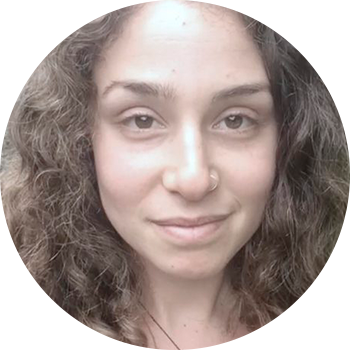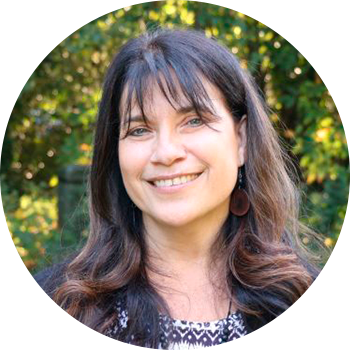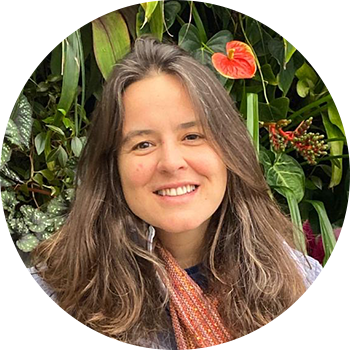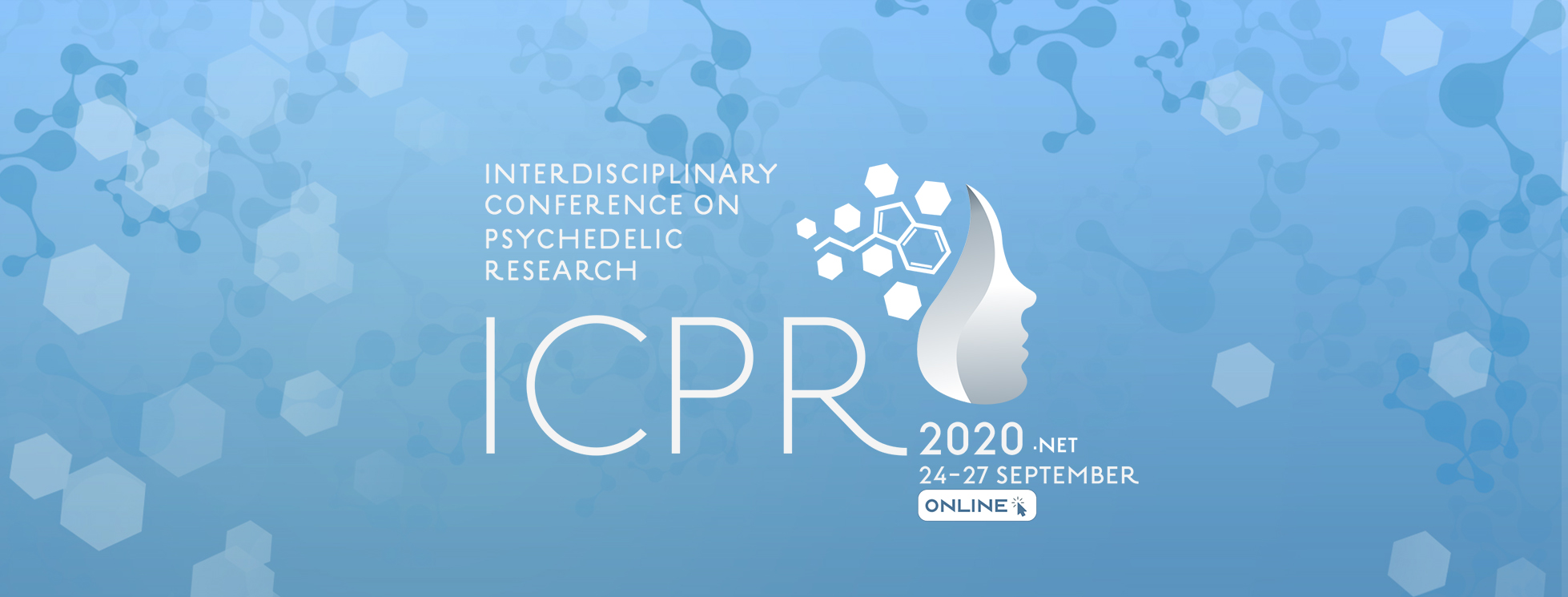- Psychedelics and Attachment: Fundamentals, Implications, and New Frontiers - April 15, 2025
- Indigenous Reciprocity Initiative (IRI) Support Internship (OPEN) - April 10, 2025
- Development Outreach Internship (OPEN) - April 10, 2025
Interdisciplinary Conference on Psychedelic Research 2020
Friday, September 25th through Sunday, September 27th
A global virtual conference of leading experts in psychedelic research and therapy, psychiatry, neuroscience, psychology and anthropology!
Panel takes place on Sunday September 27th from 21:25pm – 22:15pm CEST / 12:25pm – 1:15pm PST.
The Chacruna Institute for Psychedelic Plant Medicines is a proud Gold Sponsor of this conference!
As a sponsor, we have a special discount of €25 for the Chacruna community. Just type the code “Chacruna25!” in the Discount Coupon section.
Panel: Globalization of Ayahuasca: Economy, Ethics and Politics
Moderated by Bia Labate
Anthropologist Bia Labate will moderate this 50 minute Q&A discussion among Daniela Peluso, David Dupuis, and Olivia Marcus, all anthropologists with years of fieldwork experience in the Peruvian Amazon. The discussion centers questions concerning the ethical, political, and economic implications of ayahuasca use both within and beyond the porous boundaries of the Amazon rainforest. Daniela Peluso will discuss her analysis of the emerging – and burgeoning – industry of ayahuasca use from small-scale entrepreneurism to international business schemes. David Dupuis will focus on what he refers to as the ‘socialization of hallucinations,’ namely how set and setting structure verbal and ritual interactions that organize ceremonial experiences with ayahuasca. Olivia Marcus will reflect on concerns with ethics of care in the context of an intercultural therapeutic milieu, and how the concept of ‘integration’ must acknowledge the potentially disparate perceptions of ‘ethics’ and forms of responsibility.
David Dupuis
The socialization of hallucinations. Cultural priors, social interactions and contextual factors in the use of ayahuasca
Identifying the underpinnings of the effects of hallucinogens drugs under experimental conditions has been a great challenge for pharmacology, as these substances are known for their strong conditionality on cultural context. While Timothy Leary (1963) coined the terms ‘set’ and ‘setting’ for these non-pharmacological factors shaping the drug experience, Claude Lévi-Strauss (1970) proposed to see in hallucinogens “triggers and amplifiers of a latent discourse that each culture holds in reserve and for which drugs can allow or facilitate the elaboration”. The stereotypical nature of hallucinations reported by indigenous groups in the Americas has thus most often been interpreted by ethnologists as a cultural projection signaling the invasion of perception by collective representations (Levi-Strauss 1970, Dobkins de Rios 1972, Reichel Dolmatoff 1974). Although this thesis has won the favor of anthropologists, the vectors by which the phenomenological characteristics of hallucinations are structured by social context have so far remained little explored. Using ethnographic data collected in a shamanic center of the Peruvian Amazon and a methodology inspired by symbolic interactionism, I will draw some leads in order to shed light on the nature of this operation, which I would propose to refer to as the “socialization of hallucinations” (Dupuis 2019). In this way, I would attempt to account for the way in which verbal and ritual interactions lead not only to organize the relationship to the hallucinogenic experience, but also to its very phenomenological content.
Olivia Marcus
Traditionalizing global forms: ethics in vegetalista practices of the Peruvian Amazon
In the last two decades, the Peruvian Amazon has gained increasing recognition as a place for healing, spiritual seeking, and personal development, largely due to rising global awareness of ayahuasca, a psychedelic tea traditionally prepared among forest-dwelling societies. Traditionally ayahuasca has a variety of uses, yet there is a growing global interest in its potential therapeutic benefits, particularly for mental health conditions such as depression, anxiety, and trauma. Novel approaches to psychotherapy are emerging to address the needs of ayahuasca users to prepare as well as to guide them in ‘integrating’ their powerful psychedelic experiences, yet there is little discussion on the ethical frameworks that may structure these therapeutic processes or the social and cultural assumptions that influence the assignment of ayahuasca as a medicine. Based on ethnographic fieldwork in San Martín and Loreto, I examine the varied social meanings and uses of ayahuasca in the Peruvian vegetalista tradition and the potentially conflicting ethical implications among shamanic practitioners, mental health practitioners, and ayahuasca retreat centers. The plurality of healing approaches in the context of ayahuasca shamanism and associated psychotherapeutic practices have given form to a therapeutic milieu with intersecting ontological, and therefore ethical, configurations that lack a common worldview. Therefore, practitioners and ayahuasca centers are left with navigating globalized concepts of ethics while attempting to remain authentic to local ontologies of healing, care, and safety. The production of a cohesive ethical framework is attempted by invoking globalized psychiatric concepts through the lens of local animistic ontology.
Daniela Peluso
The emergence of global ayahuasca: from local entrepreneurship to an industry – with reflections on commodification
This presentation traces the business of ayahuasca in Madre de Dios, Peru. By approaching ayahuasca as a new and burgeoning industry linked to the ayahuasca diaspora – the spreading of its use beyond Amazonia – it will provide a general overview of the emergence and range of entrepreneurship amid more traditional and local contexts and participants. The analysis of how the ayahuasca industry has developed in only a few decades from an obscure practice into a cosmopolitan capitalist endeavor is examined through a case study in the Tambopata Province, Peru. Here, I suggest that small-scale entrepreneurism has contributed toward shaping ayahuasca’s international popularity. My research further contemplates the actual and potential impact that ayahuasca businesses have on South American indigenous and local peoples whose expertise and practices have long been the hallmark of ayahuasca practices, and raises questions of South American postcolonialism and its legacy of imperialism. As such, this analysis provides an anthropological approach toward understanding the emergence and development of entrepreneurship and makes contributions to literatures on postcolonialism, globalization, Amazonia, and ayahuasca. In closing, I will present the the Chacruna Institute for Psychedelic Plant Medicines’ “14 questions on the Commodification of Ayahuasca: How can we do better?” Chacruna’s questions take up the challenge of ensuring that ayahuasca practices are ethical, mutually beneficial, and sustainable for local and international communities in relation to collective responsibility to the plants, traditions, and our communities amidst the globalization and commodification of ayahuasca.
Panelists:

David Dupuis is a Post-Doctoral Research Fellow at the Department of Anthropology of Durham University and a member of the Hearing the Voice interdisciplinary research program. Based on ethnographic surveys conducted in the Peruvian Amazon since 2008, his research focuses on the reconfiguration of the use of ayahuasca in the context of the emergence of “shamanic tourism”. His research explores more broadly the relationships between hallucinations and culture in an anthropological comparative perspective.

Olivia Marcus received her MPH in Sociomedical Sciences from Columbia University. She has co-authored articles on the 2014/15 Ebola epidemic, plant medicine in the Peruvian Amazon, and the mental health implications of the use of ayahuasca shamanism among diverse populations. Her doctoral fieldwork in the Peruvian Amazon explores the use of Amazonian shamanism for mental wellness and the processes of professionalization and legitimization of tradition Amazonian medicine among locals and foreigners. Based on ethnographic fieldwork in San Martín and Loreto, her dissertation explains the ways in which intercultural dialogues effect changes in worldview among clientele and practitioners through the growing plurality of healing methods offered in these regions.

Daniela Peluso is a cultural anthropologist who has worked over the last two decades in Lowland South America, mostly with communities in Peru and Bolivia. She has been actively involved in various local efforts on issues relating to health, gender, indigenous urbanization and land-rights and works in close collaboration with indigenous and local organizations. Her publications focus mostly on indigenous ontologies, urbanization, violence and relatedness. She received her PhD in 2003 from Columbia University and is a senior lecturer in social anthropology at the University of Kent. She is member of the Board of Directors of the Chacruna Institute for Psychedelic Plant Medicines.

Beatriz Caiuby Labate, Ph.D. (Bia Labate) is a queer Brazilian anthropologist. She has a Ph.D. in social anthropology from the State University of Campinas (UNICAMP), Brazil. Her main areas of interest are the study of plant medicines, drug policy, shamanism, ritual, and religion. She is Executive Director of the Chacruna Institute for Psychedelic Plant Medicines (https://chacruna.net). She is Adjunct Faculty at the East-West Psychology Program at the California Institute of Integral Studies (CIIS) in San Francisco. She is also Public Education and Culture Specialist at the Multidisciplinary Association for Psychedelic Studies (MAPS). She is co-founder of the Interdisciplinary Group for Psychoactive Studies (NEIP) in Brazil, and editor of NEIP’s website (http://www.neip.info), as well as editor of the Mexican blog Chacruna Latinoamérica (http://drogaspoliticacultura.net). She is author, co-author, and co-editor of twenty-one books, two special-edition journals, and several peer-reviewed articles (http://bialabate.net).
Buy tickets here.
Use the code: “Chacruna25!” for €25 off
ICPR offers scholarships for participants from emerging economies (see this list): Please email [email protected] to apply for a scholarship ticket.
Take a minute to browse our stock:
Did you enjoy reading this article?
Please support Chacruna's work by donating to us. We are an independent organization and we offer free education and advocacy for psychedelic plant medicines. We are a team of dedicated volunteers!
Can you help Chacruna advance cultural understanding around these substances?









